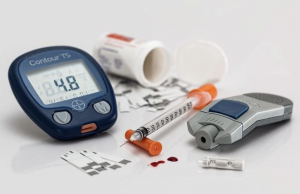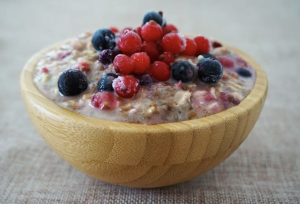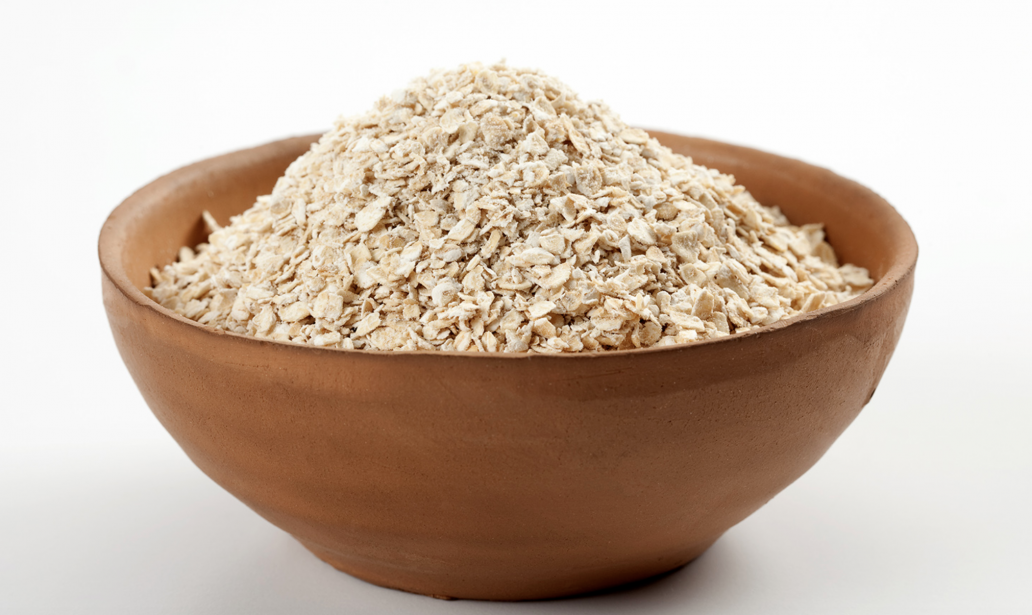It is on most grocery shelves in some form. Its packaging may not be pretty… it may not look as enticing as, say, the chocolate-chip cookies on the other aisle… but it just may be your best friend. Oats provide a concentrated source of fibre and nutrients — and may be the missing link in your diet.
Oats are a hardy cereal grain able to withstand poor soil conditions in which other crops are unable to thrive. Their fortitude seems to be transferred to those who consume this nutrient-rich grain.
Oats are an excellent source of manganese and molybdenum. They are also a very good source of phosphorus as well as a good source of copper, biotin, vitamin B1, magnesium, dietary fiber, chromium, zinc, and protein.
In many studies, eating whole grains, such as oats, has been linked to protection against atherosclerosis, ischemic stroke, diabetes, insulin resistance, obesity, and premature death.
Here are a few key benefits of oats:
1. Lower cholesterol levels
Oats, oat bran, and oatmeal contain a specific type of fibre known as beta-glucan which has been proven to have a beneficial effect on cholesterol. Studies show that in individuals with high cholesterol, consuming just 3 grams of soluble oat fibre per day typically lowers total cholesterol by 8-23%.
High cholesterol levels correlate with the build up of plaques in blood vessel walls. Lowering high cholesterol levels can therefore significantly reduce the risk of cardiovascular disease and stroke. Most importantly, as a study published in the American Journal of Clinical Nutrition indicates, oats lowers the bad cholesterol but does not affect the ‘good’ cholesterol.
2. Stabilise blood sugar for diabetics

Type 2 diabetes patients given foods high in this type of oat fibre or given oatmeal or oat bran rich foods experienced much lower rises in blood sugar compared to those who were given white rice or bread.Oats and other whole grains are a rich source of magnesium, a mineral that acts as a co-factor for more than 300 enzymes, including enzymes involved in the body’s use of glucose and insulin secretion.
Oats has been used as a dietary intervention in patients with Type 2 diabetes, and resulted in a significant reduction in insulin dosage, according to a study published in Experimental and Clinical Endocrinology & Diabetes. Starting out your day with a blood sugar stabilising food such as oats may make it easier to keep blood sugar levels under control the rest of the day.
3. Protect against heart disease and cancer
Oatmeal, like many whole grains, contains plant lignans. One lignan, called enterolactone, is thought to protect against breast and other hormone-dependent cancers as well as heart disease.
According to a study in the International Journal of Epidemiology, pre-menopausal women eating the most fibre (>30 grams daily) more than halved their risk of developing breast cancer, enjoying a 52% lower risk of breast cancer compared to women whose diets supplied the least fiber (<20 grams/day).
4. Enhance Immune Response to Infection

Since our non-specific immune defenses are the body’s first strike forces against invading pathogens, starting your day with a bowl of oatmeal may boost your immune response in addition to your morning energy levels.
According to Minerva Medica, in addition to reducing cholesterol and blunting glycemic and insulin response, beta glucans boost defenses of the immune system agains bacteria, viruses, fungi, and parasites.
5. Lowers blood pressure
Oats have also been proven to lower both systolic and diastolic blood pressure among hypertensive and hyperinsulemic men and women, as indicated in the Journal of Family Practice.
6. Aid in digestion, appetite contol, and weight loss
Oats also help you feel fuller longer, and keep your digestive system in check. As the Journal of Nutrition, Health, and Aging indicates, it can be particularly useful as an alternative for laxative use among for the elderly, as this can lead to malnutrition and unwanted weight loss.
How to Prepare Oats

Now that you know how good oats are for you, you should find ways to add oats into your diet.
Firstly, if you purchase prepared oatmeal products such as oatmeal, look at the ingredients to ensure that the product does not contain any salt, sugar or other additives.
Next, make sure you read the instructions. Different types of oats require slightly different cooking methods for making hot cereal or porridge. For all types, it is best to add the oats to cold water and then cook at a simmer.
Here are a few ideas:
- A great way to start your day—add your favorite nuts and fruits to a piping hot bowl of oatmeal.
- Oatmeal cookies are a favorite for kids of all ages.
- Add oat flour or whole oats the next time you make bread or muffins.
- Sprinkle oat bran on your hot or cold cereal.
- Oat groats make a great basis for stuffing for poultry.

